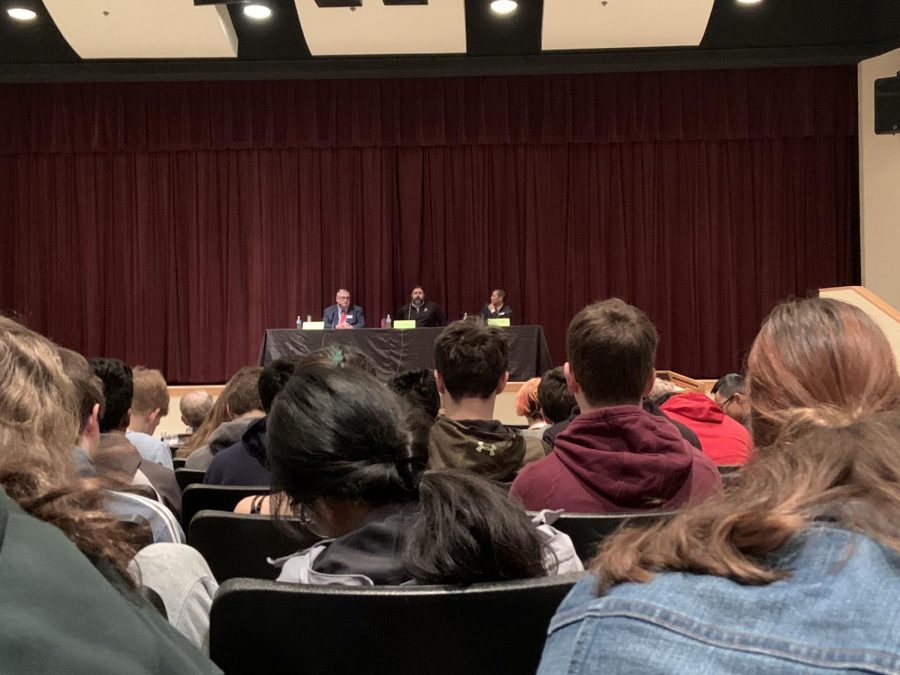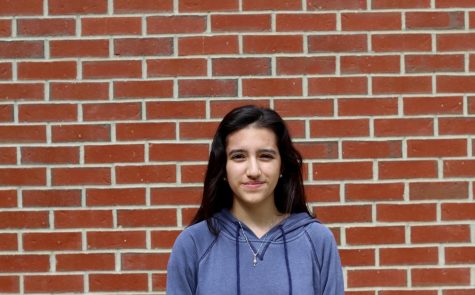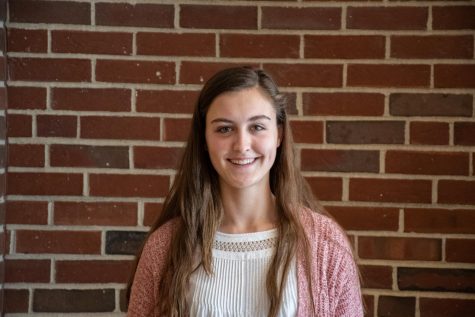Junior college admissions panel gives students basics of college process
Juniors listening to college representatives talk about the admissions process on March 6. Representatives from three major universities attended and gave students a quick run-down of what they can expect when they start to apply to colleges in the fall.
March 10, 2020
A college admissions panel for juniors and their parents was held during periods one and two in the auditorium on March 6.
Representatives included Mark Donnelly, Ken Sawada and John Chenier from Northeastern University, Syracuse University and Framingham State University respectively.
“I thought it was informative,” junior Jack Dobosh said. “I thought that each [representative] had unique advice, and you could see what was common and different between different schools.”
Some students, however, found the information to be repetitive.
“I thought it was helpful, but you can also get that kind of information at a college tour or informal meetings,” junior Andre Knapp said.
Topics included the importance of campus tours, essay topics, letters of recommendation, grades, testing and more. Representatives answered questions in specificity to the schools they represented.
Junior Maxwell Vere thought only having three representatives made it hard to get a larger picture of the college process for schools as a whole.
“Some parts were helpful, other parts not so much because they were just focusing on just one major school,” Vere said.
Representatives answered scripted questions asked by guidance counselors Dave Breglio and Rebecca Haberman.
“We are trying to get information out to everybody about what schools are looking at,” guidance counselor Rebecca Haberman said. “We try to devise questions that kids and parents would have.”
After Breglio and Haberman finished asking the scripted questions, questions were opened up to the juniors.
“It was good to hear that different things go into the application beyond your grades and that your essay is more about your personality and less about showing off what you did,” Dobosh said.
“Overall, it was helpful for people going through the college admissions process the first time, but for kids who may have older siblings go through the process, it seemed like there wasn’t a lot of new information,” junior Nick Seto said. “It was useful for new parents and new students going through the college admissions process, but I don’t think it should be a large mandatory thing that all students have to attend.”











